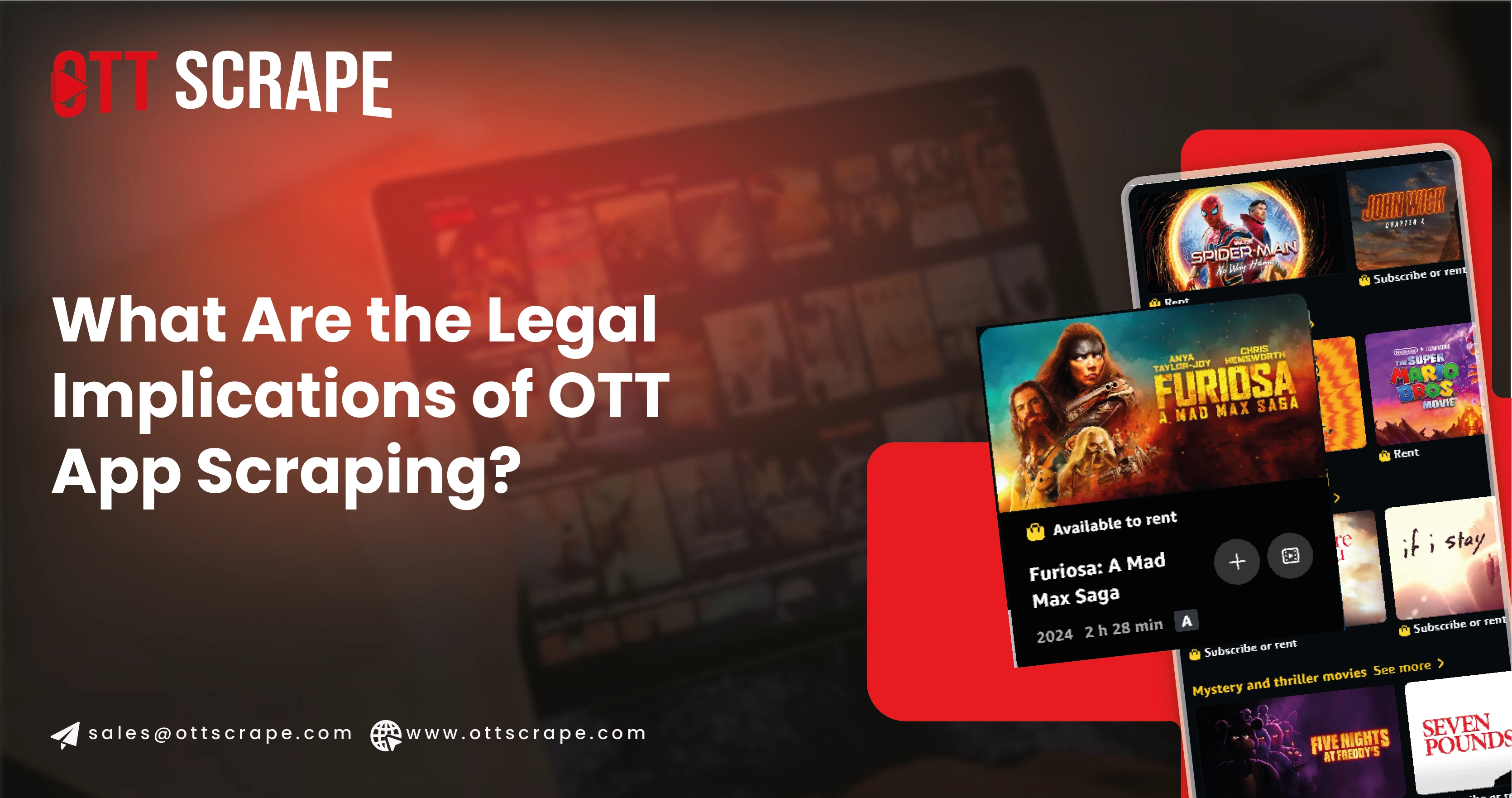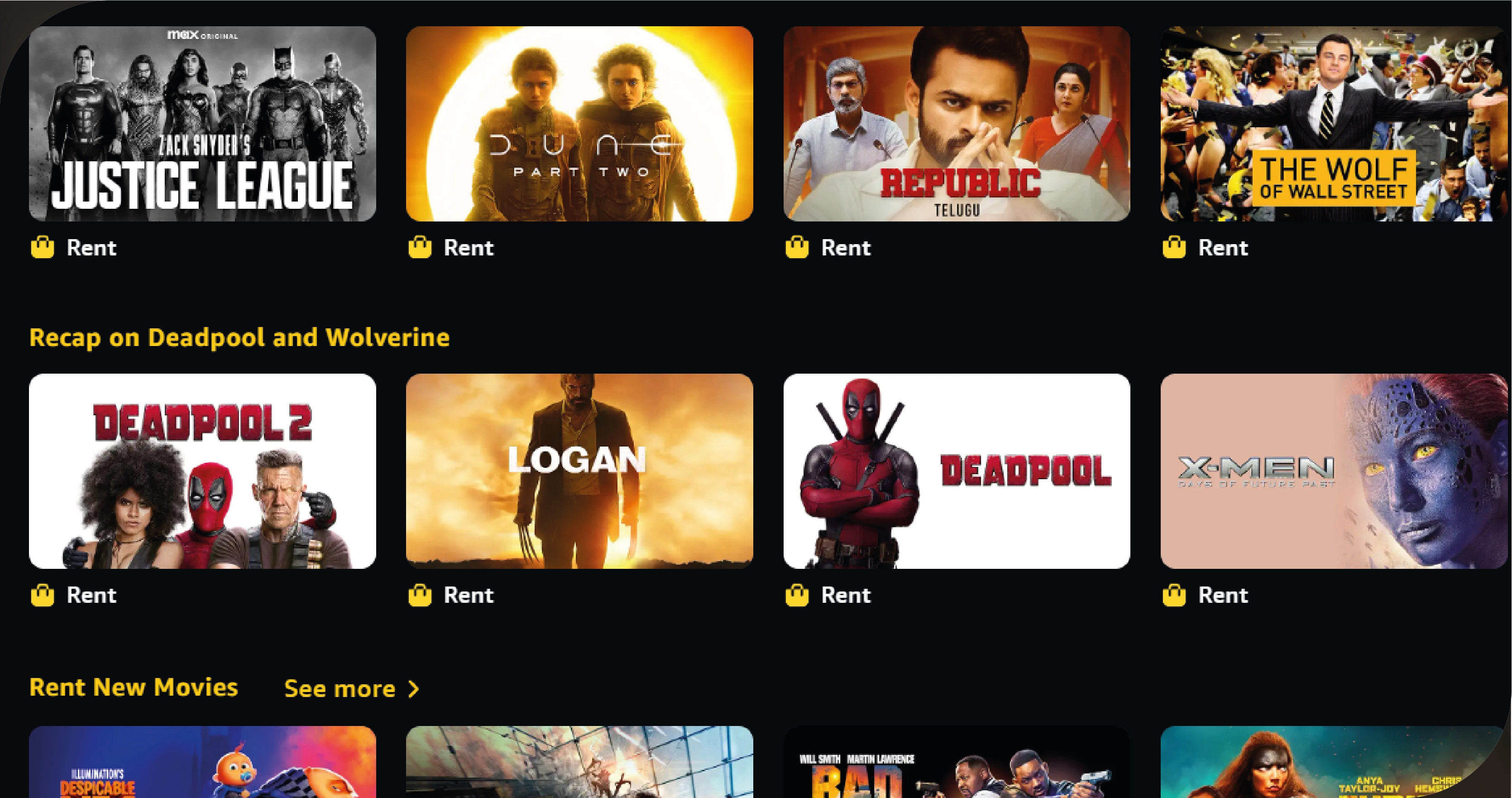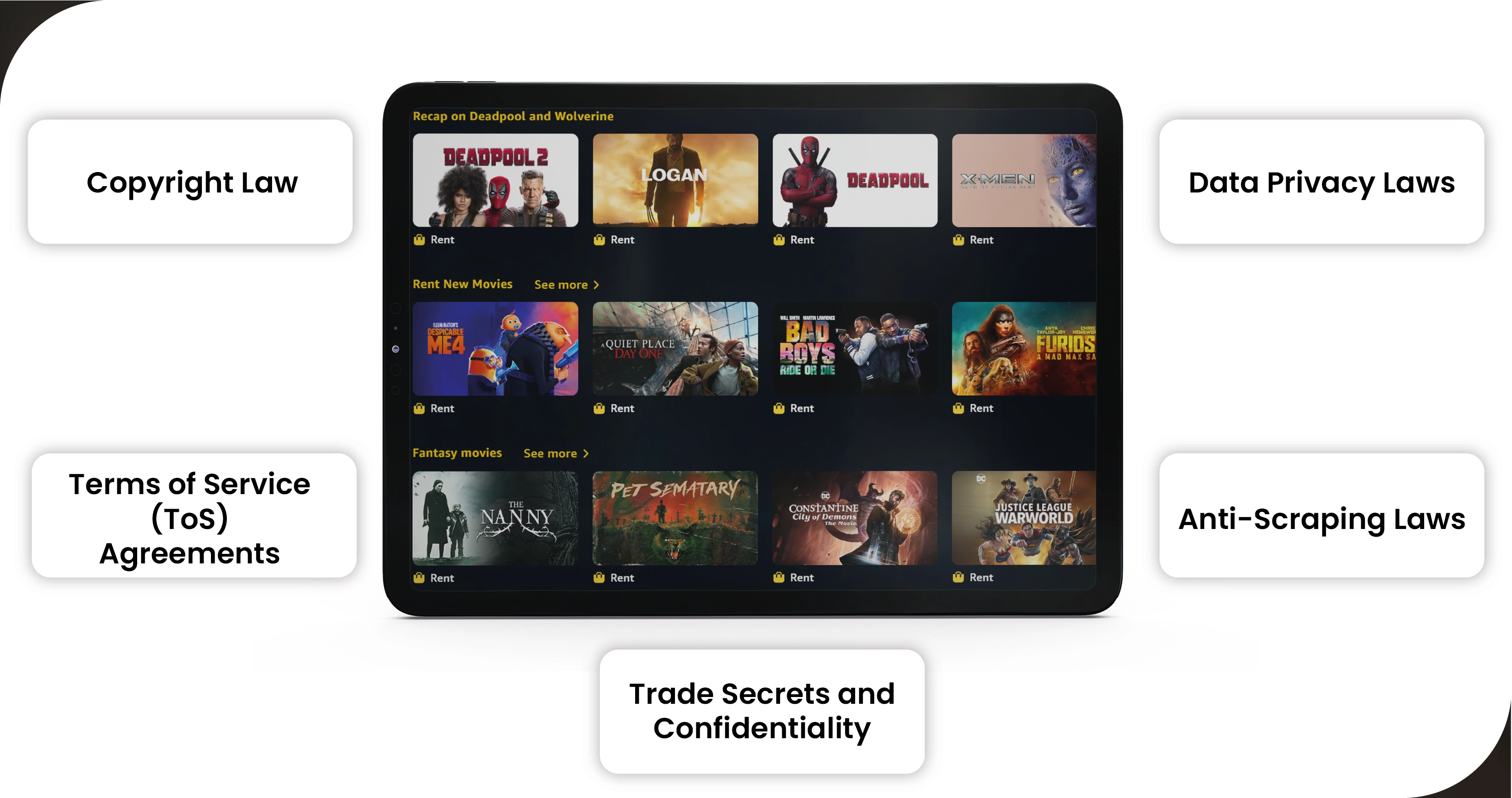
Over-the-top (OTT) platforms such as Netflix , Amazon Prime, and Hulu have transformed media consumption in today's digital era. As businesses and analysts increasingly utilize OTT data scraping to gather insights, it's essential to understand the legal ramifications. OTT data scraping involves extracting data from these streaming platforms, such as content catalogs, user ratings, and pricing information. While this data can offer valuable insights, scraping must be conducted within legal boundaries to avoid potential issues.
Legal considerations include adherence to copyright laws, as unauthorized extraction of copyrighted content can lead to infringement claims. Additionally, scraping OTT streaming data may violate Terms of Service (ToS) agreements, which often prohibit automated data collection. Data privacy laws, such as the GDPR and CCPA, impose strict rules on handling personal information, adding another layer of compliance requirements.
Businesses using OTT data scraping services should comply with these regulations to mitigate legal risks. Reviewing platform terms, obtaining necessary permissions, and adhering to data privacy laws are crucial steps. By following best practices and consulting legal experts, businesses can effectively and legally utilize data from OTT platforms.
What is OTT App Scraping?

OTT app scraping involves extracting data from streaming platforms like Netflix, Amazon Prime , and Hulu. This process gathers crucial information such as content catalogs, user ratings, reviews, and pricing details. Such data is precious for market research, competitive analysis, and content management. Businesses often use an OTT data scraper to automate and streamline this process. However, being mindful of the legal implications of scraping data from OTT platforms is essential. Utilizing OTT app data scraping services requires careful consideration of copyright laws, terms of service agreements, and data privacy regulations to ensure compliance and avoid potential legal issues.
Legal Framework Governing OTT App Scraping

1. Copyright Law
Copyright law is a fundamental consideration when scraping data from OTT platforms. Content on these platforms, including movies, TV shows, and original programming, is typically protected by copyright. Unauthorized scraping of copyrighted material, such as full episodes or movies, can lead to copyright infringement claims.
- Copyright Infringement: Scraping copyrighted content without permission may violate the copyright holder's exclusive rights, including the right to reproduce, distribute, and display the work. This can result in legal actions and substantial penalties.
- Fair Use Doctrine: In some jurisdictions, the doctrine may provide limited exceptions for using copyrighted material without permission for purposes such as criticism, comment, or research. However, fair use is often narrowly interpreted and may not cover scraping large amounts of copyrighted content.
2. Terms of Service (ToS) Agreements
- Contractual Restrictions: By agreeing to the ToS, users agree to abide by the platform's rules, which may include restrictions on scraping. Violating these terms can result in the termination of access and potential legal actions for breach of contract.
- Enforcement: Platforms actively monitor and enforce their ToS agreements, and scraping activities that violate these terms can lead to legal disputes. It's essential to review and comply with the specific terms outlined by the OTT platform.
3. Data Privacy Laws
Data privacy laws are majorily relevant in OTT app scraping, especially when dealing with user data. Regulations including the General Data Protection Regulation & CCPA impose strict rules on collecting and processing personal data.
- GDPR: In the European Union, the GDPR mandates that organizations obtain explicit consent before collecting or processing personal data. Scraping user data from OTT platforms without proper consent can lead to significant fines and legal repercussions.
- CCPA: In California, the CCPA gives consumers the right to know what personal data is being collected and request its deletion. Scraping user data violating CCPA regulations can result in legal penalties and damages.
4. Anti-Scraping Laws
Some jurisdictions have specific anti-scraping laws to prevent unauthorized data extraction from websites and online platforms. These laws vary by country and can impose significant restrictions on scraping activities.
- Computer Fraud and Abuse Act (CFAA): In the United States, the CFAA makes it illegal to access a computer system without authorization. Scraping data from OTT platforms that explicitly prohibits such activities may fall under this statute, leading to potential criminal charges.
- UK's Computer Misuse Act: The Computer Misuse Act criminalizes unauthorized access to computer systems in the United Kingdom. Scraping data violating access restrictions can lead to legal consequences under this act.
5. Trade Secrets and Confidentiality
Trade secrets and confidential information are another concern when scraping OTT platforms. Platforms may use proprietary algorithms or data models that are considered trade secrets.
- Misappropriation of Trade Secrets: Scraping data that reveals proprietary algorithms or confidential business information can lead to claims of trade secret misappropriation. It's crucial to avoid extracting data that could be classified as confidential or proprietary.
Best Practices for Legal Compliance in OTT App Scraping
1. Review Platform Terms of Service
Before engaging in OTT app data scraping, thoroughly review the platform's ToS to understand any restrictions or prohibitions related to data extraction. Ensure that your scraping activities comply with these terms to avoid legal disputes.
2. Obtain Necessary Permissions
If you need to scrape streaming platform data that might be subject to copyright or privacy laws, seek explicit permission from the OTT platform. Obtaining a data use agreement or license can mitigate legal risks and ensure compliance with relevant laws.
3. Adhere to Data Privacy Regulations
Ensure that your scraping practices align with data privacy regulations such as GDPR and CCPA. Avoid collecting personal data without consent, and implement measures to protect user privacy and data security.
4. Limit Data Collection
To avoid potential copyright infringement and privacy issues, minimize the amount of data you scrape. Focus on collecting only the data necessary for your purposes and avoid scraping large volumes of copyrighted or personal information.
5. Use Ethical Scraping Techniques
Employ ethical scraping techniques that respect the website's robots.txt file and rate limits. Avoid aggressive scraping that could disrupt the platform's operations or violate access restrictions.
6. Consult Legal Experts
Given the complex legal landscape of streaming app scraping, consult with legal experts specializing in intellectual property, data privacy, and technology law. Legal counsel can guide compliance and help navigate potential legal challenges.
Conclusion: Understanding the legal aspects of OTT app scraping is essential for businesses and analysts seeking to leverage data from streaming platforms. Stakeholders can mitigate legal risks and ensure compliance by navigating copyright laws, terms of service agreements, data privacy regulations, and anti-scraping laws. Adhering to best practices and consulting legal experts can enhance compliance and safeguard against potential legal issues. As the landscape of data scraping continues to evolve, staying informed about legal developments and maintaining ethical practices will be crucial for successful and lawful data extraction from OTT platforms.
Embrace the potential of OTT Scrape to unlock these insights and stay ahead in the competitive world of streaming!
